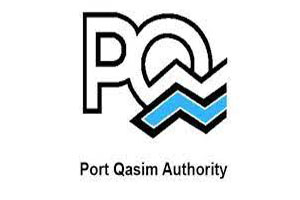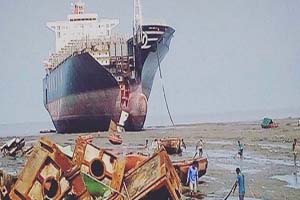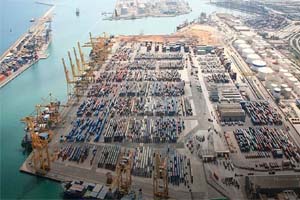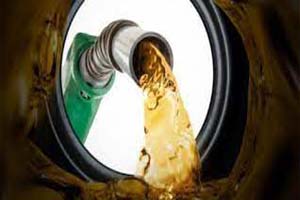
30,000 MT Supplementary Storage at PQA
The Port Qasim Authority (PQA) has declared strategies to develop an additional 30,000 metric tons of storage capacity to support the rising demand for cement and clinker exports. Task Force on enhancing cement and clinker exports from Pakistan. As part of export facilitation measures, steps are being taken to obtain a list of Bangladeshi cement importers to facilitate Letters of Credit for Pakistani banks operating in Bangladesh and enhance the competitiveness of Pakistani cement. To further streamline operations, sub-working group including representatives from the Ministry of Railways, Ministry of Maritime Affairs, KPT, and Arif Habib to identify land near the Karachi Northern Bypass for establishing truck marshalling yards that the development of such yards would help reduce both the time and cost of cement transportation provided with maximum facilitation to increase exports.
|

United States Investment Opportunities at Pakistan’s Port
A United States delegation was informed about the infrastructure and forthcoming investment prospects at Pakistan’s port that underscored the sector’s growing role in trade and economic growth. Karachi Port alone handles 54 percent of the country’s trade with an annual capacity of 125 million tons. KPT operates three private container terminals, one private bulk terminal, three liquid cargo berths, and 13 dry cargo berths and improved its global ranking to 61st among 405 container ports and successfully handled Pakistan’s largest vessel measuring 400 meters. The delegation was also updated on Gwadar Port’s infrastructure development, including special economic zones and tourism potential as part of its long-term growth strategy. The US side conveyed interest in LNG terminals, bulk cargo handling, and wider investment prospects across Karachi, Port Qasim, and Gwadar, describing Pakistan’s maritime sector as strategically significant for regional trade and economic expansion.
|

400 Vessels to Dismantle at The Gadani Shipbreaking Yard
planning to dismantle approximately 400 abandoned vessels at the Gadani Shipbreaking Yard. To revitalize the shipbreaking industry while confirming alignment with international environmental and safety standards. To secure dismantling contracts, Pakistan practiced shipbreaking compliance effort as a part of requirements of the Hong Kong International Convention for the Safe and Environmentally Sound Recycling of Ships (HKC). Under the HKC, which will be fully implemented by 2030, all vessels over 500 gross tonnage must be recycled using methods that minimize hazardous waste and prevent environmental harm. A part of a broader strategy to transform Gadani into a hub for safety and sustainability of the recycling process, in line with international environmental standards, the Gadani shipbreaking yard is undergoing upgrades to support efforts and to equip the yard with modern facilities, including a hazardous waste treatment plant, rescue and fire safety services, improved access roads, and clean water supply.
|

Port Qasim Expansion – The Development of a Coastal Economic Zone
Port Qasim is experiencing an expansion as part of a broader plan to develop a Coastal Economic Zone, along with the establishment of two new LNG terminals under a Build-Operate-Transfer (BOT) model. The ambitious development agenda includes proposals for a shipyard, multipurpose cargo terminals, an integrated container terminal, and a second oil terminal equipped with advanced storage facilities. Currently operating 24/7 for ship handling and cargo evacuation, Port Qasim is also undergoing connectivity upgrades through enhanced road and rail links. At Port Qasim crucial current projects, together with the dredging of navigation channels, dualization of a 26-kilometer access road, development of effluent treatment plants, and construction of an alternate cargo route.
|

National Wheat Policy
To tackle the worsening crisis of rising wheat shortages, low cultivation, surging flour prices and devastated crop-producing regions the government has announced plans to formulate a National Wheat Policy. National Wheat Policy aims to stabilize the wheat supply chain, protect the interests of farmers with a shift towards sustainable agriculture, improved productivity, food sovereignty ensures affordable prices for consumers, and build long-term resilience against climate shocks. The National Wheat Policy is not a response to a short-term crisis, but it is a proactive blueprint for investing in farmers, ensuring agricultural sustainability and resilience, markets and economic stability, national food security and to build a future deprive of wheat shortages and price shocks.
|

Freigh Phase – 1 of the Dedicated t Corridor (DFC) at Pipri
Securing foreign direct investment (FDI) worth $400 million for the expansion of Phase-1 of the Dedicated Freight Corridor (DFC) at Pipri, Pakistan Railways has contracted a commercial agreement with the National Logistics Corporation (NLC) and DP World. The partnership with NLC, DP World, and the Government of the United Arab Emirates is "a new era for Pakistan Railways". The venture is aimed to enhance Pakistan’s freight-handling volume by empowering faster, more competent cargo movement to and from Karachi Port. Modernizing the country’s freight transport infrastructure and improving inclusive logistics efficiency, the DFC is to alleviate bottlenecks on major routes and ease congestion at port terminals, and diverting freight traffic away from congested roadways. Pakistan Railways’ revenue to be strengthen through freight charges, track access fees, and revenue-sharing mechanisms.
|

High-Tech Lubricants Blending Plant – Chevron Inflates Existence in Pakistan
A wholly automatic, state-of-the-art lubricants blending facility has recently launched by Chevron in Pakistan a milestone in the company’s operations. The $30 million investment emphasizes Chevron’s long-standing pledge to the Pakistan’s oil sector. Currently, around 70 million liters of premium-quality lubricants is being Chevron supplied annually across Pakistan, serving both the industrial and automotive markets. The new plant is anticipated to lift operational efficiency, ensure products complied international standards, and contribute completely to the local economy. The investment is Chevron’s confidence in Pakistan’s economic outlook and highlights the vital role of global partnerships in driving industrial growth. It closely brings into line with Pakistan’s vision of promoting technology-led industrial development. Chevron remains committed to strengthen its role in the country’s evolving energy sector and Pakistan’s growth potential.
|

Boost Fuel Oil Exports By 35% To 40%
During the fiscal year ending June 2026, Cnergyico Pakistan’s largest refiner expects to boost fuel oil exports by 35% to 40% as high taxes have cut into domestic sales. Pakistan imposed additional taxes of about 40% on domestic sales of fuel oil in June, on top of a consumption tax of 18%, effectively shutting down refiners out of the domestic market. Cnergyico will be importing more sweet crude and upgrading the refinery to produce cleaner diesel, gasoline and lessen fuel oil production with boost fuel sales to the domestic market, and also plan to set up fuel oil cracking amenities to improve gasoline production, in line with Pakistan’s policy guidelines to upgrade refineries to yield cleaner fuels. Cnergyico principally imports sour crude, with high Sulphur content, and reserved first-ever purchase of US crude by Pakistan.
|
|
© 2025 Alpine Marine Services Private Limited
all rights reserved
|
|
|